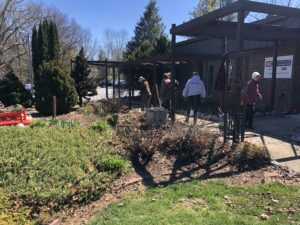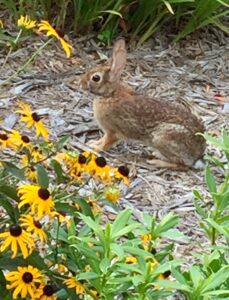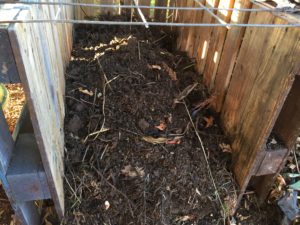Cleaning Up the Garden in the Spring
go.ncsu.edu/readext?926228
en Español / em Português
El inglés es el idioma de control de esta página. En la medida en que haya algún conflicto entre la traducción al inglés y la traducción, el inglés prevalece.
Al hacer clic en el enlace de traducción se activa un servicio de traducción gratuito para convertir la página al español. Al igual que con cualquier traducción por Internet, la conversión no es sensible al contexto y puede que no traduzca el texto en su significado original. NC State Extension no garantiza la exactitud del texto traducido. Por favor, tenga en cuenta que algunas aplicaciones y/o servicios pueden no funcionar como se espera cuando se traducen.
Português
Inglês é o idioma de controle desta página. Na medida que haja algum conflito entre o texto original em Inglês e a tradução, o Inglês prevalece.
Ao clicar no link de tradução, um serviço gratuito de tradução será ativado para converter a página para o Português. Como em qualquer tradução pela internet, a conversão não é sensivel ao contexto e pode não ocorrer a tradução para o significado orginal. O serviço de Extensão da Carolina do Norte (NC State Extension) não garante a exatidão do texto traduzido. Por favor, observe que algumas funções ou serviços podem não funcionar como esperado após a tradução.
English
English is the controlling language of this page. To the extent there is any conflict between the English text and the translation, English controls.
Clicking on the translation link activates a free translation service to convert the page to Spanish. As with any Internet translation, the conversion is not context-sensitive and may not translate the text to its original meaning. NC State Extension does not guarantee the accuracy of the translated text. Please note that some applications and/or services may not function as expected when translated.
Collapse ▲Now that the temperatures have warmed, it is time to clean up the garden. Why, you may ask, did we not clean up the garden sooner? The reason is that there are many forms of wildlife that depend on the dried stalks, leaves, seed heads, etc. for shelter and food in the winter.

Extension Master Gardener℠ Volunteers of Henderson County clean up the Extension Teaching Garden in late March 2023
Animals such as box turtles, toads, spring peepers, salamanders and lizards use garden debris and fallen leaves and sticks. Insects overwinter inside the dried hollow stems of many perennial flowers and hollow stemmed shrubs such as hydrangeas. Butterflies and moth larvae overwinter in leaf litter. When gardeners remove the remnants of the summer garden they remove the material that many creatures utilize as winter habitat.
However, once the spring thaw has occurred and temperatures moderate, most of the wildlife has abandoned the winter garden. This is the time to cut back your perennial flowers and grasses. If you want to remove your leaves, this is the time to do this as well. Break up the stems and along with the leaves, add to your compost.






